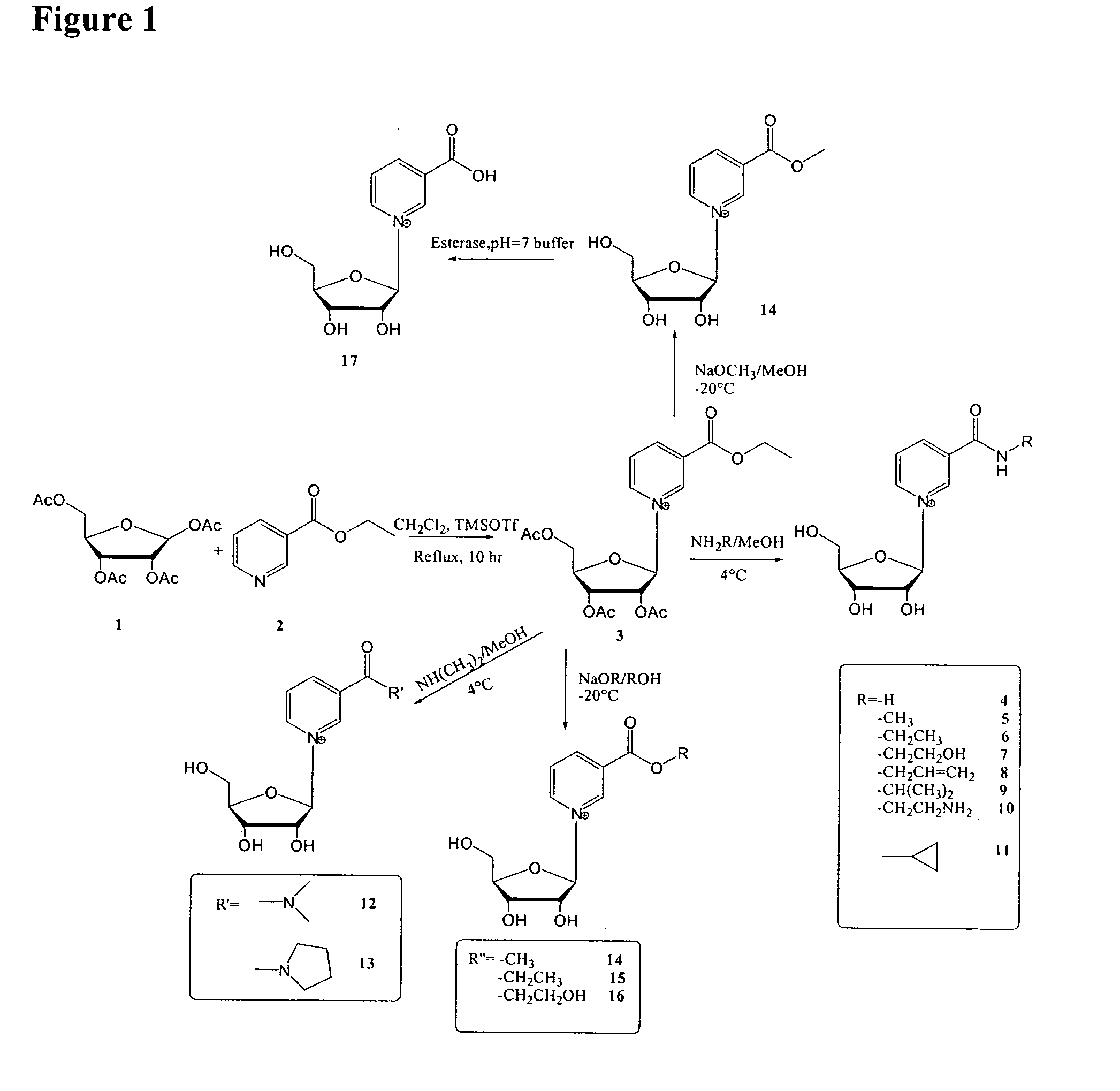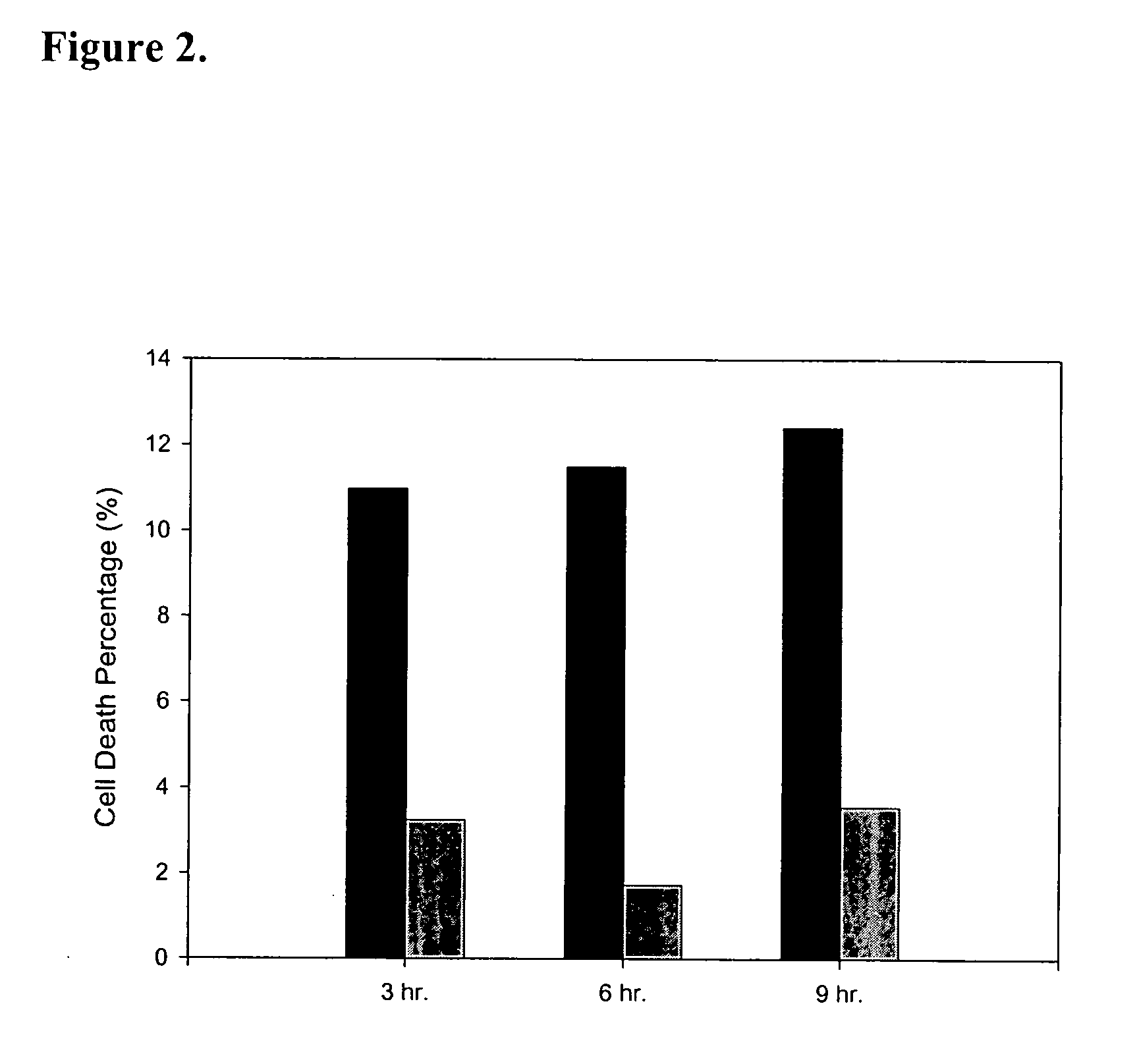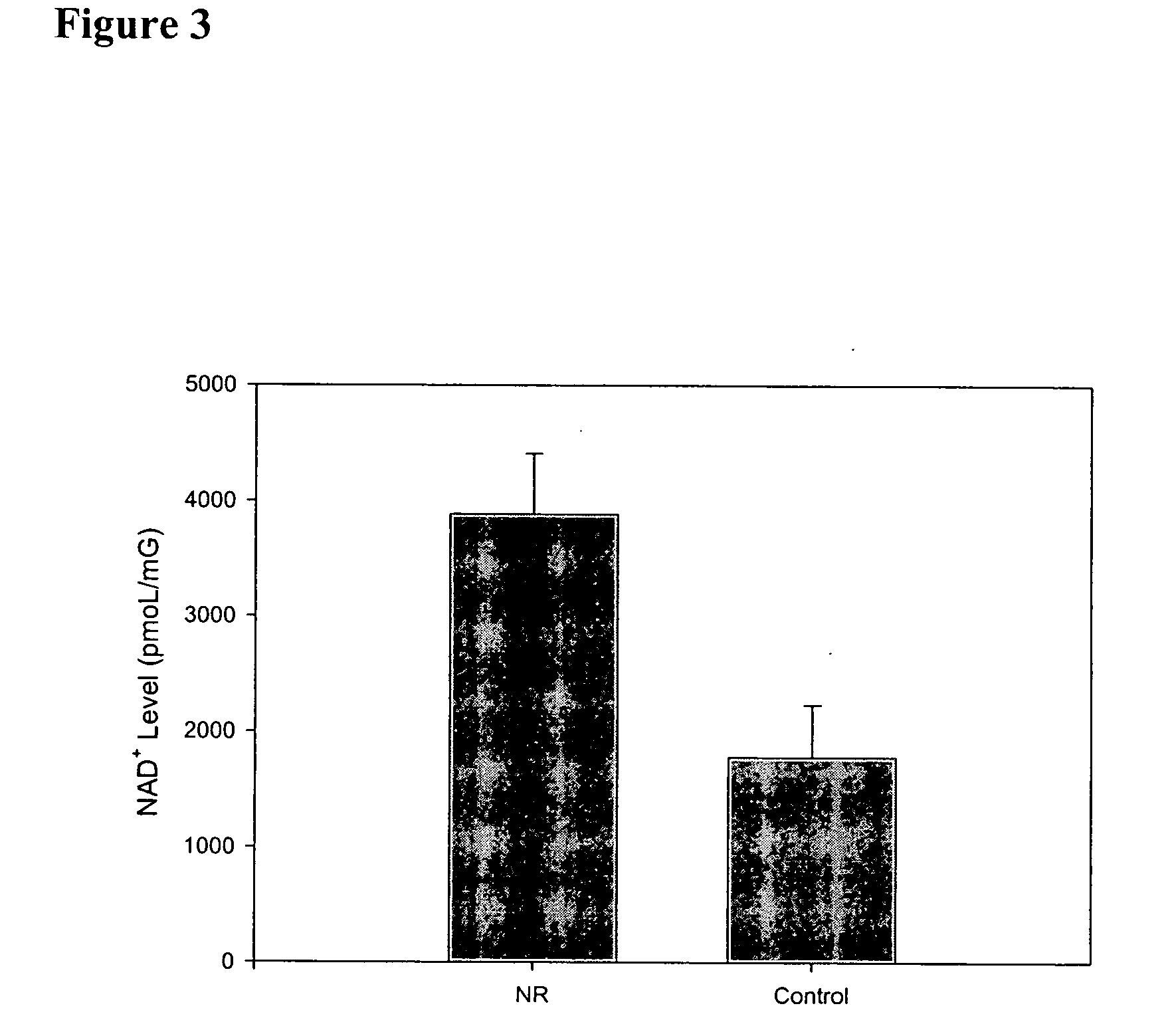Nicotinoyl riboside compositions and methods of use
a technology of nicotinamide riboside and composition, which is applied in the field of composition of nicotinoyl ribosides and nicotinamide riboside derivatives, can solve the problems of adverse effects and toxic effects of compounds entering the nad+ metabolic pathway, and achieve the effect of improving cell and tissue survival and promoting intracellular levels
- Summary
- Abstract
- Description
- Claims
- Application Information
AI Technical Summary
Benefits of technology
Problems solved by technology
Method used
Image
Examples
example 1
Synthesis of 2′, 3′, 5′-triacetyl ethyl nicotinate riboside (ethyl 1-[3,4-diacetyloxy-5-(acetyloxymethyl)oxolan-2-yl]-pyridine-3-carboxylate)
[0264] One equivalent of trimethylsilyl trifluoromethanesulfonate (TMSOTf) was slowly added into Ethyl nicotinate (0.9 mL, 6.6 moL) and 1,2,3,5-tetra-O-acetyl-β-D-ribofuranose (1.4 g, 4.4 mmol) in 50 mL anhydrous methylene chloride at room temperature. The mixture was then heated to reflux for 8 hour. TLC stained with H2SO4 in MeOH showed the disappearance of 1,2,3,5-tetra-O-acetyl-β-D-ribofuranose, and almost pure product. The product could be used directly for the next step after methylene chloride was evaporated.
example 2
Synthesis of β-NAR (nicotinamide riboside)
[0265] 2′, 3′, 5′-Triacetyl ethyl nicotinate riboside (180 mg, 0.44 mmol) was added into 4.7 mL of 4N NH3 / MeOH on ice. After mixed well, the reaction was stored at 4° C. overnight. After methanol was removed in vacuum, the residue was dissolved in water, and extracted with ethyl acetate three times to get rid of the non-polar impurity. The water layer was then concentrated and injected into reverse HPLC for purification (waters xTerra Prep RP18® column, 2 mL / min, 20 mM ammonium acetate).
example 3
0-Alkyl β-Nicotinate Ribosides
[0266] 2′, 3′, 5′-Triacetyl ethyl nicotinate riboside (25 mg, 0.61 μmol) was added into 0.9 mL of NaOMe / MeOH (255 mM) or NaOEt / EtOH (312 mM) on ice. After mixed well, the reaction was stored at −20° C. overnight. The reaction was quenched with addition of acetic acid to pH=7. After organic solvent was removed in vacuum, the residue was dissolved in water, and extracted with cyclohexane to get rid of the non-polar impurity. The water layer was then concentrated and injected into reverse HPLC for purification.
TABLE 1Entry(Figure 1)RTemp.14—OCH3−20° C.15—OCH2CH3−20° C.16—OCH2CH2OH−20° C.
PUM
| Property | Measurement | Unit |
|---|---|---|
| Temperature | aaaaa | aaaaa |
Abstract
Description
Claims
Application Information
 Login to View More
Login to View More - R&D
- Intellectual Property
- Life Sciences
- Materials
- Tech Scout
- Unparalleled Data Quality
- Higher Quality Content
- 60% Fewer Hallucinations
Browse by: Latest US Patents, China's latest patents, Technical Efficacy Thesaurus, Application Domain, Technology Topic, Popular Technical Reports.
© 2025 PatSnap. All rights reserved.Legal|Privacy policy|Modern Slavery Act Transparency Statement|Sitemap|About US| Contact US: help@patsnap.com



